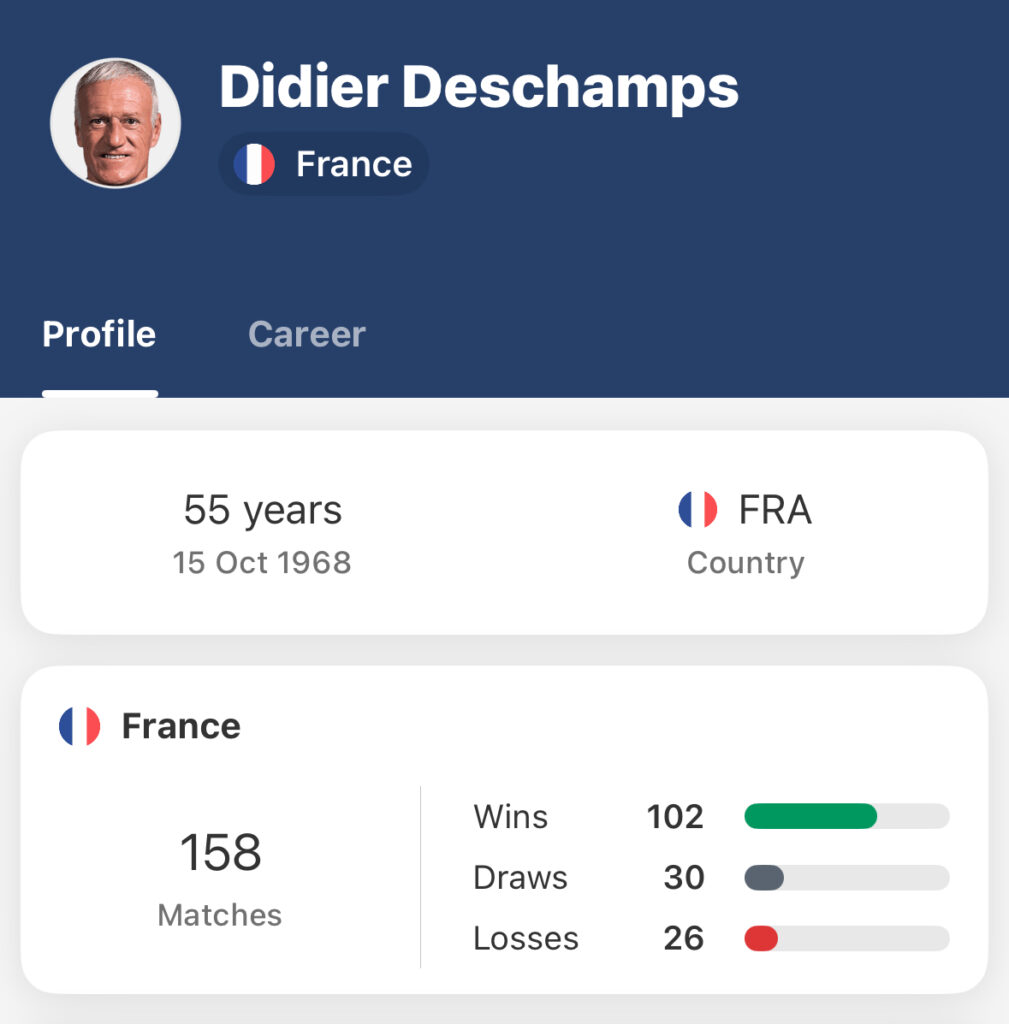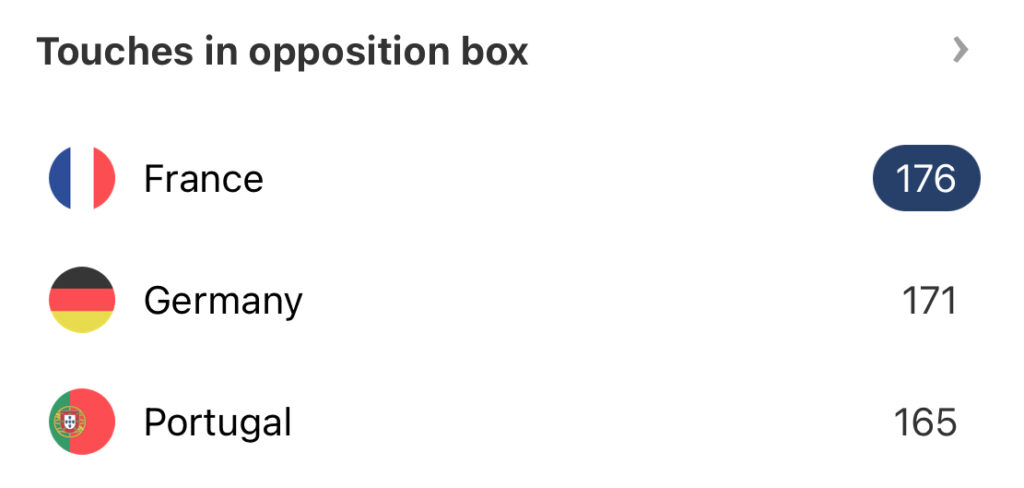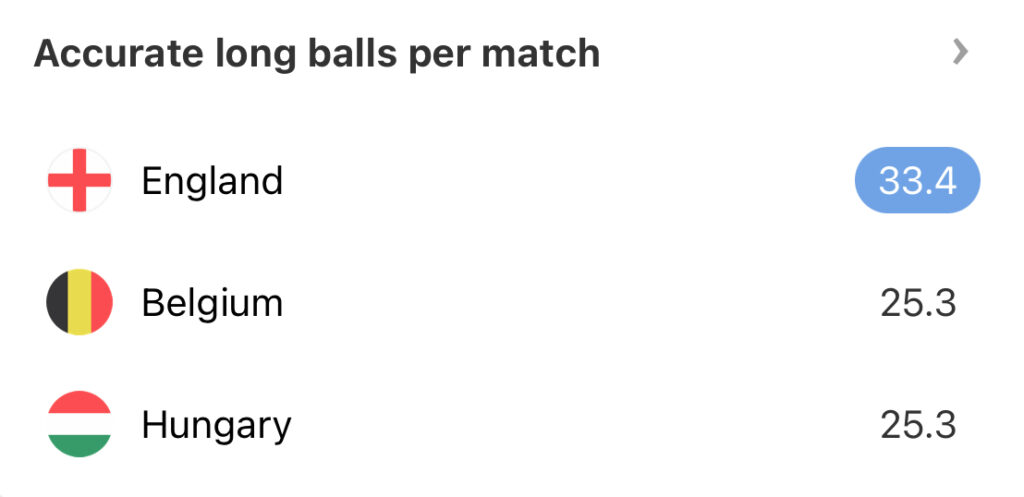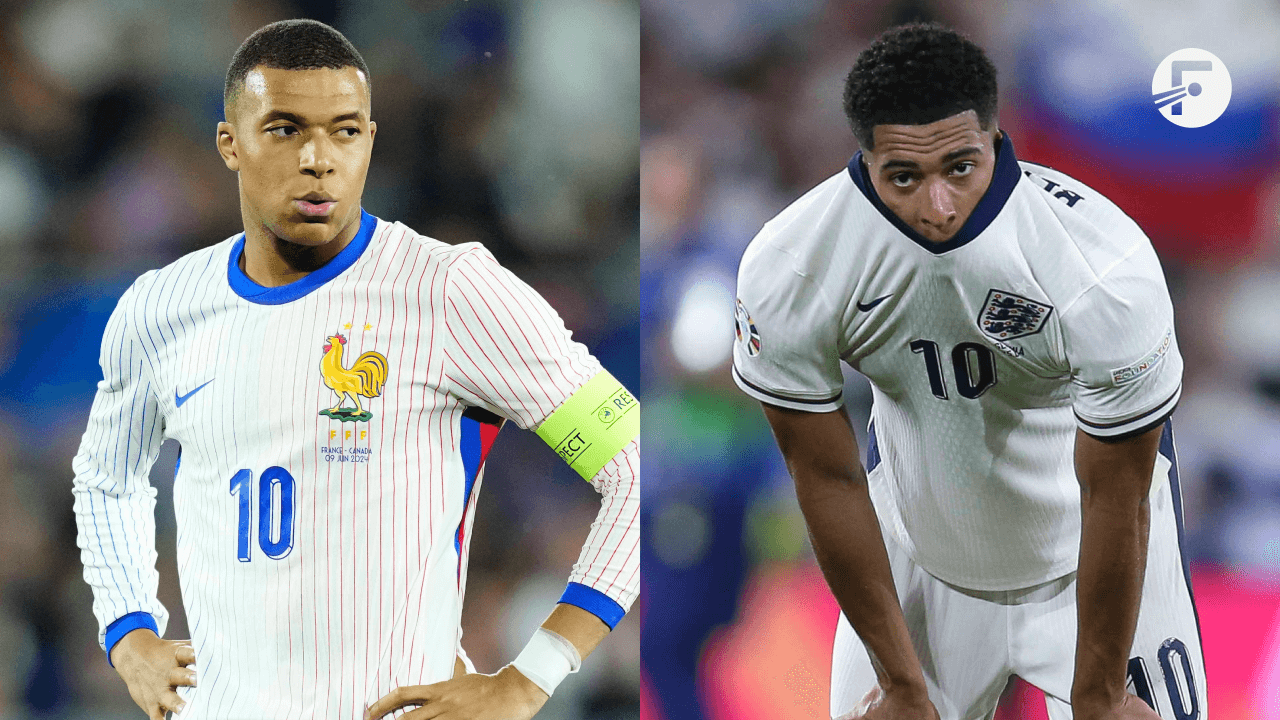France and England could be on a collision course for the Euro 2024 final, although both Spain and the Netherlands might have something to say about that. If it does materialise, however, many fear it could be one of the most hard-to-watch major tournament finals given the two teams’ boring style of play. However, there is a key difference between them that could strongly influence their chances.
By Neel Shelat
If we had to pick a word of the tournament for Euro 2024, it would probably be ‘Sufferball’. The term is used to describe the painful-to-watch styles of play that teams often adopt in tournament football, with the intention being to grind out results in tight matches by being extremely risk-averse. The chief proponents of this approach in Germany have been France and England, but there is a critical difference between the two which we may soon see.
France: Suffering for Success
Didier Deschamps is looking to become the only man to win both the World Cup and European Championship as a player and manager, and he wants to do it by hook or crook. He has been quite defensive about his style of play in more ways than one – both in terms of its implementation on the pitch and when asked about it in press conferences. “If we’re boring you, you can watch something else”.
The 55-year-old tactician can boast of a mightily impressive record in charge of Les Bleus having taken them to the Euro 2016 final, brought the World Cup home in 2018 and broken the champions’ curse in 2022 to reach the final once again. Even so, it is now six years since their last major trophy, and this mini-drought seems to have prompted Deschamps to somewhat change his approach.

Over the years, Deschamps has been happy to let his teams attack with a decent amount of freedom. France were the top scorers at Euro 2016 when they lost to Portugal in extra-time and won the next World Cup by defeating Croatia 4-2 in the final having scored four in a prior knockout tie against Argentina as well. He has since been forced to put the handbrake on a little as a lack of defensive solidity cost France in the Round of 16 of Euro 2020 when Switzerland beat them on penalties after a 3-3 draw, and again in the last World Cup final.
France’s national team is currently enjoying something of a golden generation, spearheaded by Kylian Mbappé but with world-class players in all positions from Aurélien Tchouaméni in midfield to William Saliba in defence and Mike Maignan in goal. This team can really be shaped in any way the manager wants, so now, Deschamps is trying his hand at completely locking things down defensively.
He has always used a solid defensive block rather than press, but now, his side’s in-possession approach has also gotten much more risk-averse. In big games in the current tournament, he has dropped a forward for a midfielder to form a trio including Tchouaméni, N’Golo Kanté and Adrien Rabiot – all of whom are more concerned with protecting the back line than going forward to pose an attacking threat.
At least from the defensive perspective, this approach has worked as France have kept the most clean sheets and conceded the fewest goals at the tournament. That is not to say that they have not had any lapses, but one of their world-class defenders has almost always bailed them out.

The question for Deschamps, though, is why he needs to protect his back line so much when he already has the tournament’s strongest defensive unit. One may argue that he is better off adding more attacking threat instead given the fact that France set an unwanted record by becoming the first team to go four games without a single open-play goal from any of their players (and extended it to five in the quarter-final). Upon closer inspection, though, it becomes clear that their tactics are not the biggest problem in this respect.
Les Bleus have had a hard time in front of goal due to two major factors: a lack of stability in the attacking department and a glaring lack of clinicality. The first issue can be put down to the lack of an established striker as well as Mbappé’s weakened performances following his injury, which in turn should also explain the second. The problem is not that France are not getting into promising positions, but instead that their players are then making bad decisions and/or executing poorly.

Had they made more of their chances, we could easily be lauding France as one of the best teams of the tournament rather than discussing their issues. Now, there is a debate to be had about whether Deschamps’ move to an ultra-risk-averse approach is the best way to approach tournament football as one of the favourites, but either way, it should be clear that his underlying ideas going into the tournament made sense and have worked to a decent extent.
We should also note that France’s approach is not best suited in any way for matches against fellow risk-averse opposition such as Belgium or Portugal but instead geared for games against more proactive sides. So, all the suffering could well be worth it IF they get the better of Spain tonight.
England: Suffering without Success
At surface level, Gareth Southgate and England may seem quite similar to Deschamps and France as both managers have overseen a sustained period of success for the national team. At this tournament, they are both unbeaten with seemingly similar Sufferball approaches yielding the same aggregate goal difference of +2 across five matches.
England should not see that as a sign that they have performed at a similar level to France because the quality of opposition they have faced has been vastly different. While Les Bleus have taken on the Netherlands and Austria in the group before sending Belgium and Portugal packing in the knockouts, the Three Lions scraped through a straightforward group with Denmark, Serbia and Slovenia before enjoying a relatively simple knockout route, facing Slovakia and Switzerland so far.
Even though they have not been tested by opposition of the strongest calibre, England have struggled. They could only score once in the group, needed Jude Bellingham’s late heroics to save them from a premature Round of 16 exit, and only overcame Switzerland on penalties.
Southgate’s tactics have held his exceptionally talented squad back in this tournament. He has made and doubled down on some decisions such as starting Trent Alexander-Arnold in a midfield role in which he spent more time in front of the ball than behind it, or insisting on using Kieran Trippier as a left back despite his right-footedness and inability to pose a threat going forward on that flank.
As a result, England’s attacking has been completely one-dimensional with almost everything going through Bukayo Saka on the right wing. Consequently, they are very easy to defend against – at least in terms of coming up with a plan to stifle that tactic. Worse yet, they can also be gotten at by pressing high as Jordan Pickford has been very trigger-happy with long balls.

The real issue is that the Three Lions’ in-possession approach has nothing to do with being risk-averse or trying to support the defence. It is quite simply bad as a consequence of a poorly designed plan which has not been fixed and is thrown out of the window in the hour of need.
Contrary to France, England are still in the tournament because a couple of game-changing moments from their forwards have masked much larger attacking issues and some potential defensive frailties. They are far from solid in either aspect, so unless Southgate makes some much-needed changes, they could well be exposed in the next match or two.
(Cover image from IMAGO)
You can follow every game from Euro 2024 live with FotMob — featuring deep stats coverage, xG, and player ratings. Download the free app here.
